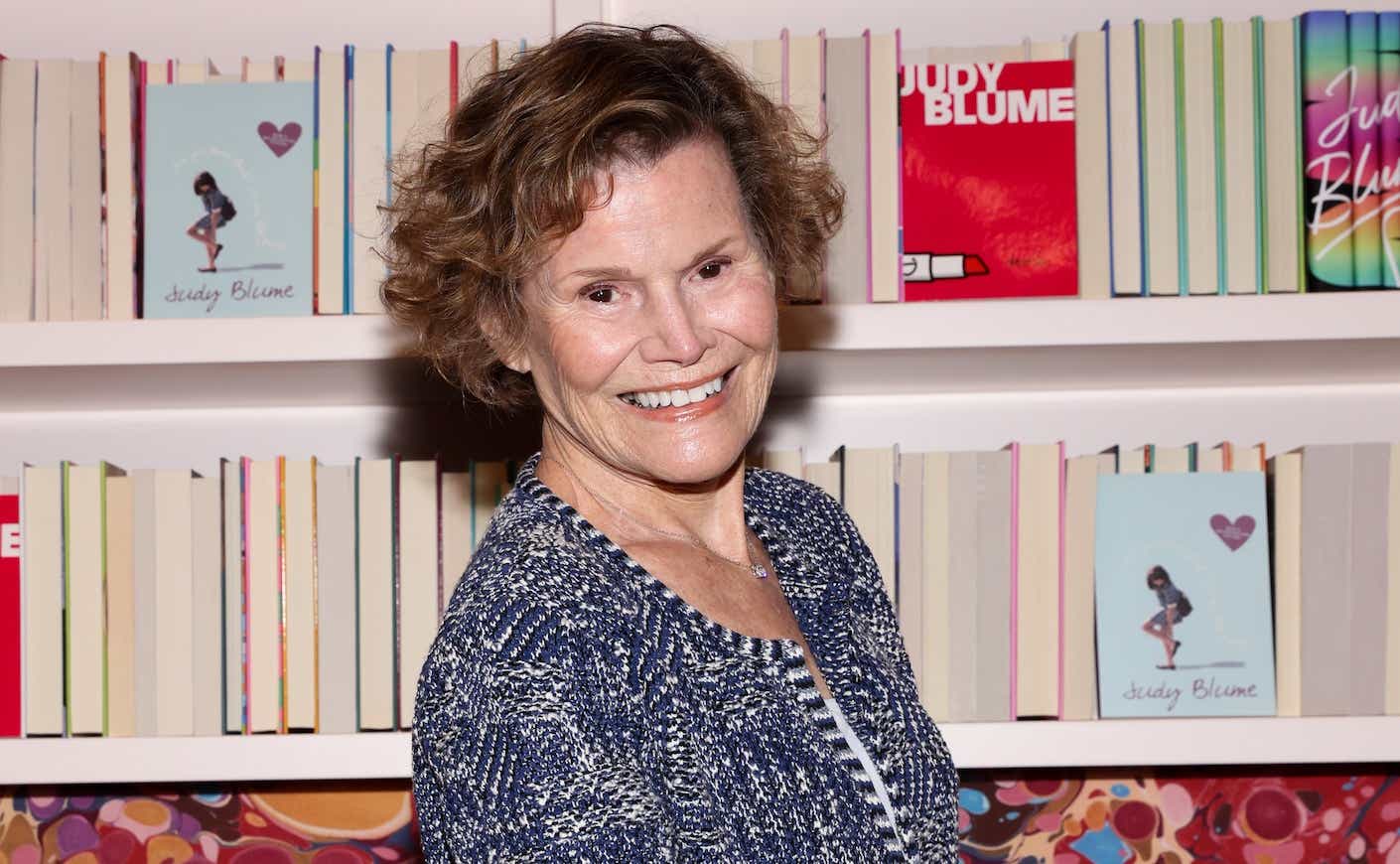Plus, why Judy Blume’s life and career have inspired a new documentary that will leave you misty-eyed.
When you first hit puberty, it’s very likely that a kind adult (a librarian, a teacher, your mother, your aunt) handed you one of Judy Blume’s books to see you through. Blume’s classic young adult novels explore the nitty-gritty of adolescence — complete with the ugly, embarrassing, sometimes funny details that parents are usually too squeamish to explain to curious children. These hilarious yet poignant stories reassure readers that Nope, you’re not the only one who doesn’t know what the heck your body is doing during this volatile time.
Thanks to books like Are You There, God? It’s Me, Margaret and Forever…, generations of children received sex education through relatable characters who were learning to navigate the world. Now, filmmakers Davina Pardo and Leah Wolchok have immortalized Blume’s empathetic take on teen years in the recently released documentary, Judy Blume Forever. To celebrate the release, Katie sat down with Pardo, Wolchok, and Blume to talk about Blume’s legacy. They reminisce about first periods and the initial backlash against Blume’s books in the 80s. Plus, they discuss why Blume’s battle against censorship is now more relevant than ever.
Read our favorite moments below.
Katie Couric: I remember my mom talking to me about my period on our way to Mrs. Richmond’s house, where I took piano every week. My mom would drive me in our station wagon. Even then it was so uncomfortable. Then, I got a book in Girl Scouts that I still have that my daughters think is so funny. It was called, I’m Becoming a Girl or From Girlhood to Womanhood — something that Kotex had produced. Why do you think a lot of people were — and in some cases still are — so uncomfortable talking about these things?
Judy Blume: I don’t know. Because it’s personal. It’s private. This was never my experience; I was never embarrassed about it. I loved talking about it. I didn’t talk about it with my parents, but I was lucky to have this group of friends just like Margaret’s group. We talked about it endlessly for one year.
I think we were all obsessed even though we didn’t all have our periods at the end of that year, our breasts hadn’t yet developed by the end of that year. Eventually, it didn’t seem so important that we had to talk about it — there were boys to talk about and other things.
It’s so funny how different our experiences are. I was mortified. It was so uncomfortable and I really didn’t want to get my period.
Davina Pardo: I was that kid who got their period really early. I was so ashamed. There’s just such a range of experiences, always. There have always been girls who hated it, girls who dreaded it, and girls who wanted it more than anything.
I think the beauty of Margaret is that even though most of the characters really want it, there’s still so much empathy for all the experiences.
Randy [Blume’s 14-year-old daughter] encouraged you to write the book that would perhaps be your most controversial — Forever… Take us back to what it was like when you were suddenly the subject of censorship.
Blume: That was very hard. I felt alone. I felt dejected. I didn’t know where to turn. It was a very difficult time until I found the National Coalition Against Censorship — or they found me…I still don’t know how it happened, but I became active with them. I think that, always, this is true: Doing something makes you feel so much better than being sad on your own.
So many school libraries didn’t have their policies in place and parents were running in and saying, “Get rid of this book, get rid of that book.” They were waving them around and librarians were frightened, so they did what was asked of them.
A lot of us, including me, really thought, We have come through this and we will never go through this again because this is America. We celebrate our freedom to read, to choose, to learn, and to question. No one is going to take that away from us again. But guess what? You all know this: Here we are again — only worse because now it’s coming from the government.
Forever… was banned again in places like Utah and Florida. Leah, you see what Judy went through in the 80s — because she was ahead of her time in many ways — but you see this [censorship] happening again now. What are your thoughts?
Leah Wolchok: I’m infuriated, enraged. At first, it was shock and disbelief, and then that turned into rage, fury, and now action. In St. Johns County, Florida — right next to Duval County, where I grew up and where my best friend and brother still live — Forever… was just banned again in the last couple of months.
Judy’s books are still being banned, but for the most part, the books that are being banned now are books by authors who are Black, Indigenous, people of color, and authors who are queer or trans. They’re writing these beautiful stories about characters who are Black, Indigenous, people of color, and queer or trans. Those are the books, the stories, and the characters that are being taken off the shelves in those exact communities where kids need to find stories about themselves because they might not have other kids in their classrooms who are like them.
Listen to the full podcast episode here:









